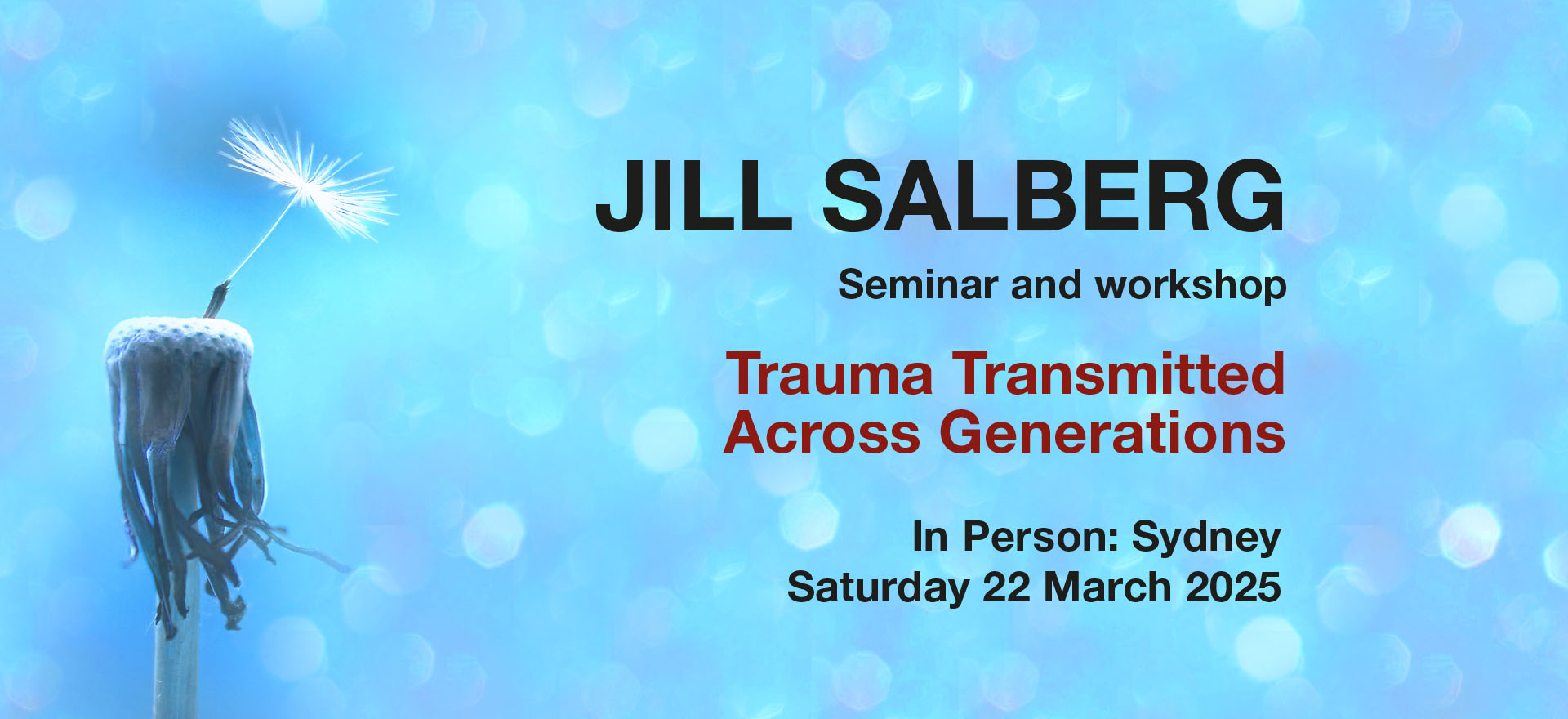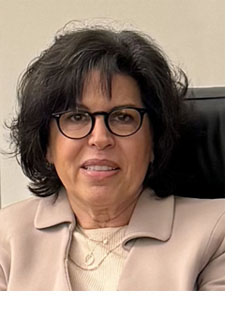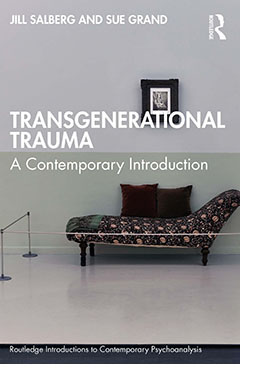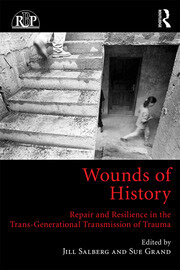|
IARPP AUSTRALIA LIVE IN PERSON EVENT Bookings NOW OPEN - Limited registrations - until SOLD OUT |


Jill Salberg - LIVE - Trauma Transmitted Across Generations
Sydney - UTS Aerial
YOU WILL RECEIVE THE ZOOM LINK THE DAY BEFORE THE SEMINAR
| Sydney - Saturday 22 March 2025 - Full day in-person event only. This event will not be online. Ticket numbers are strictly limited. |
Seminar Description:
In Person Seminar in Sydney.
'There is, in each survivor, an imperative need to tell and thus to come to know one’s story, unimpeded by ghosts from the past against which one has to protect oneself. One has to know one’s buried truth in order to be able to live one’s life.'
Dori Laub
Trauma and the intergenerational transmission of its effects had been marginalized within psychoanalysis for many years. Over the past few decades psychoanalysis has corrected that and steadily has been theorizing about trauma transmissions affecting multiple generations. How has the original literature, which was based on the Holocaust and its effect on the second and third generation, lent itself to exploring other histories of trauma: genocide, racial persecution, war and slavery? These histories are, in many cases, unprocessed and unmourned remaining open wounds passing from one generation to the next in search of recognition and repair. The violence of trauma fractures someone’s experience of being in the world and pulls at the fabric of attachment, our intrinsic way of feeling safe. This unconscious history can transmit resilience, resourcefulness, and care for the other. As we are living in a time of chaos and uncertainty, we understand that the violence of trauma fractures our experience of being in the world; it ruptures human bonds and damages the fabric of attachment. But all too often, the here-and-now is inscribed with darker transmissions: hopelessness, terror, despair, hostility towards the Other. Repairing history means knowing, and mourning, our unknown histories, and the histories of others.
 About the Speaker:
About the Speaker:
JILL SALBERG, Ph.D. is faculty and supervisor at the NYU Postdoctoral Program in Psychotherapy and Psychoanalysis, Stephen Mitchell Center for Relational Studies, and a member of IPTAR. In addition to her articles, she is the editor of and contributor to Good Enough Endings: Breaks, Interruptions and Terminations from Contemporary Relational Perspectives (2010) and Psychoanalytic Credos: Personal and Professional Journeys of Psychoanalysts (2022). She has co-edited with Sue Grand, The Wounds of History: Repair and Resilience in the Transgenerational Transmission of Trauma, and Transgenerational Trauma and the Other: Dialogues Across History and Difference, (2017), both books won the Gradiva Award (2018). Their co-written book Transgenerational Trauma: A Contemporary Introduction published May 2024 Routledge. She is in private practice in Manhattan and online.
PRICE:
THERE ARE NO REFUNDS FOR THIS EVENT: PLEASE BOOK CAREFULLY.
PRICES ARE APPLICABLE UNTIL THE DATES BELOW OR UNTIL SOLD OUT.
IARPP Aust Members Early Bird to Dec 31st 2024 - $135 AUD
IARPP Aust Members 1 Jan 2025 to March - $150 AUD
Non Members - $175 AUD
PROGRAM:
10am: Registration and barista coffee
11am: 2 Hour Seminar
1pm: Buffet Lunch
2pm: 2 Hour Clinical Workshop
4pm: Canapes
VENUE:
Aerial UTS Function Centre:
UTS Broadway Campus,
Building 10, Level 7
(entry via 235 Jones St).
PARKING:
INTERPARK DETAILS
Building 10, Thomas Street, Ultimo
Saturday, 8.00am to 5.30pm.
 About the 'Transgenerational Trauma – A Contemporary Introduction':
About the 'Transgenerational Trauma – A Contemporary Introduction':
By Jill Salberg, Sue Grand
In this book, Jill Salberg and Sue Grand offer an overview of the psychoanalytic work on transgenerational trauma, rooting their perspective in attachment theory, and the social-ethical turn of Relational psychoanalysis. Transgenerational Trauma: A Contemporary Introduction is a cutting-edge study of trauma transmission across generations. Salberg and Grand consider how our forebears' trauma can leave a scar on our lives, our bodies, and on our world. They posit that, too often, we re-cycle the social violence that we were subjected to. Their unique approach embraces diverse psychoanalytic and psychodynamic theories, as they look at attachment, legacies of violence, and the role of witnessing in healing. Clinical and personal stories are interwoven with theory to elucidate the socio-historical positions that we inherit and live out. Social justice concerns are addressed throughout, in a mission to heal both individual and collective wounds.
Transgenerational Trauma: A Contemporary Introduction offers a nuanced and comprehensive approach to this vital topic, and will be of interest to psychoanalysts, psychologists and other mental health professionals, as well as students and scholars of trauma studies, race and gender studies, sociology, conflict resolution, and others.
 About the 'Wounds of History: Repair and Resilience in the Trans-Generational Transmission of Trauma'
About the 'Wounds of History: Repair and Resilience in the Trans-Generational Transmission of Trauma'
Edited By Jill Salberg, Sue Grand
Wounds of History takes a new view in psychoanalysis using a trans-generational and social/political/cultural model looking at trauma and its transmission. The view is radical in looking beyond maternal dyads and Oedipal triangles and in its portrayal of a multi-generational world that is no longer hierarchical. This look allows for greater clinical creativity for conceptualizing and treating human suffering, situating healing in expanding circles of witnessing. The contributors to this volume look at inherited personal trauma involving legacies of war, genocide, slavery, political persecution, forced migration/unwelcomed immigration and the way attachment and connection is disrupted, traumatized and ultimately longing for repair and reconnection. The book addresses several themes such as the ethical/social turn in psychoanalysis; the repetition of resilience and wounds and the repair of these wounds; the complexity of attachment in the aftermath of trauma, and the move towards social justice. In their contributions, the authors remain close to the human stories. Wounds of History will be of interest to psychoanalysts, psychologists and other mental health professionals, as well as students or teachers of trauma studies, Jewish and gender studies and studies of genocide.


